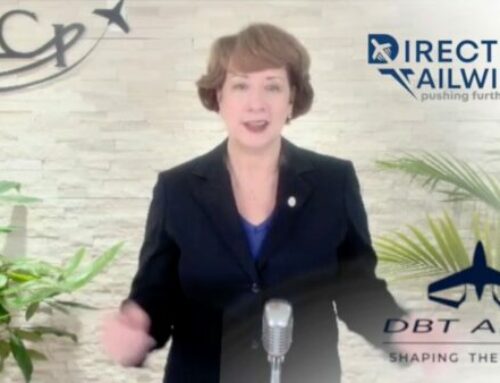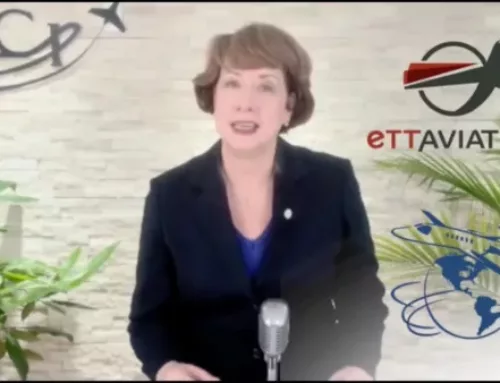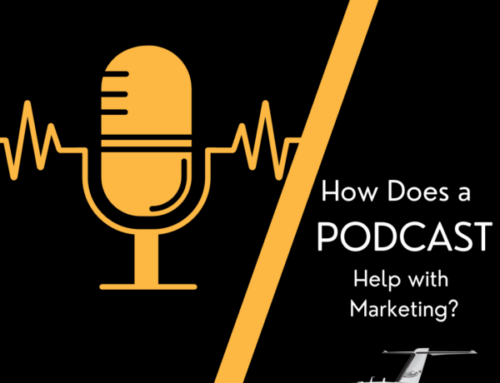We’ve been discussing Jay Conrad Levinson’s classic Guerrilla Marketing and breaking down Jay’s Sixteen Monumental Secrets of Guerrilla Marketing.
Secret Number Two is this – Your Secret Weapon – Commitment to Your Marketing Plan
We have said many times that a consistent marketing plan is far superior to what we call “random acts of marketing.” Many companies, even large and sophisticated ones; don’t act very sophisticated, systematic or committed to their marketing messages and methods.
They tend to “try” different marketing methods without giving them a fair test, which would include giving them adequate time to work, and quantifying the results. In textbook marketing terms, that’s three to six months. In aviation, it’s even longer. We recommend a year.
Making major changes to your marketing messages or methods more frequently than that is a waste of money, and more importantly, a waste of time, energy and enthusiasm. This kind of churn can leave people and whole companies exasperated and frustrated.
Commit to marketing.
The first step may seem obvious. Many companies have no problem with committing to their products, service, suppliers, vendors, customers, employees, or even to a location. But few realize the necessity and power of being committed to the concept of marketing.
As long as you’re in business, you have a need to find customers. They are like oxygen for your business.
Especially in aviation, it is much more popular to talk about and spend money on research and development, product improvement, and supply chain management than it is to talk about and spend money on sales, marketing, or even customer service.
The hard truth is that it’s impossible to have a successful business while ignoring sales and marketing. Businesses can have a stellar product or service and still have to close their doors because they don’t make enough sales. (It happens every day!) On the other hand, businesses can have a mediocre product or service and have fantastic successes if they do a good job of marketing – as evidenced by the “pet rock” or the “snuggly” blanket with sleeves.
We don’t have many “pet rocks” or “snugglies” in aviation, but there are plenty of high-quality products that don’t get the sales they deserve.
Commit to your core marketing messages.
Your company probably has a core marketing message. You can call it a slogan, a tagline, or anything you want to call it. Some famous examples are Nike’s “Just Do It” or JetBlue’s “You Above All.” These messages do a nice job of explaining what the company’s core benefit is. Having a core message (or set of messages) that is concise and powerful is a wonderful thing. Yours might not be quite so poetic as Nike’s or Jetblue’s, but hopefully at least as accurate. Ours is “Marketing for the Aviation Industry.”
Once you have a solid, tested, accurate core message; using it everywhere has several benefits. It communicates your priorities, values and strategic advantage. People will remember something that they hear several times. Your employees clearly understand the company’s strategic advantage and (hopefully) their place in delivering it. Your company becomes more credible if its messages are consistent. Your core message is more believable if it’s repeated.
Use it prominently:
- In advertising
- On stationery
- In your email signature
- On trade show booth graphics
- On your website, blog, and social media profiles
- On internal memos, training materials, employee handbooks and so on
Commit to your marketing methods.
We do recommend devoting some portion of your marketing time and budget to exploring new technologies. Our Marketing Master Class devotes each month to a different topic such as blogs, LinkedIn, Facebook or trade shows so that you can decide if these are a good opportunity for you. It is essential to keep reinventing your marketing methods to take advantage of new technologies.
Once you find a marketing method that works for you, commit to it for at least three months, preferably a year at a time.
Why? Because it takes several contacts to make a sale.
The National Sales Executive Association statistics show the following:
2% of sales are made on the 1st contact
3% of sales are made on the 2nd contact
5% of sales are made on the 3rd contact
10% of sales are made on the 4th contact
80% of sales are made on the 5th-12th contact
Aviation has a shockingly long sales cycle, and notoriously high trust barriers. It can take even longer than the NSEA statistics, (which are for all merchandise across industries) especially for big-ticket or complex products.
Of course, not all of these contacts have to be in the same media. A potential customer might get two postcards, see our ad in Airport Business, download our free ebook, read three printed newsletters and nine emails, and when I ask him “how did you find us?” six months later, he will still say “A colleague referred me.”
And he would be entirely accurate, (not very complete, but accurate) because most sales cycles take several contacts in different media. The truth is he may not consciously remember every contact or weighed its influence on the decision-making process.
How can you afford to sustain such a long sales cycle? It’s much easier if you can use several low-cost media:
- If you’re going to spend money on print advertising, buy several small ads rather than one large one.
- Use a calendar of consistent but related promotions. As an example, you might appear at different trade shows and offer different terms, savings or free gifts. But keep your messaging, branding consistent.
- Postcards mailed monthly or quarterly might be more effective than a complete catalog mailed annually. (You can keep your catalog online, where it can be updated more frequently!)
- Writing a blog will help you write consistent new material that you can re-use in an emailed or printed newsletter to keep in touch with your customers.
- Use a regular schedule of follow up with past, present and future customers.
- Commit to branding standards – colors, fonts, graphic images that represent your company. These might evolve but don’t change them radically.
Commitment to your marketing plan is a “secret” weapon because few companies realize the power of such commitment..







Leave A Comment